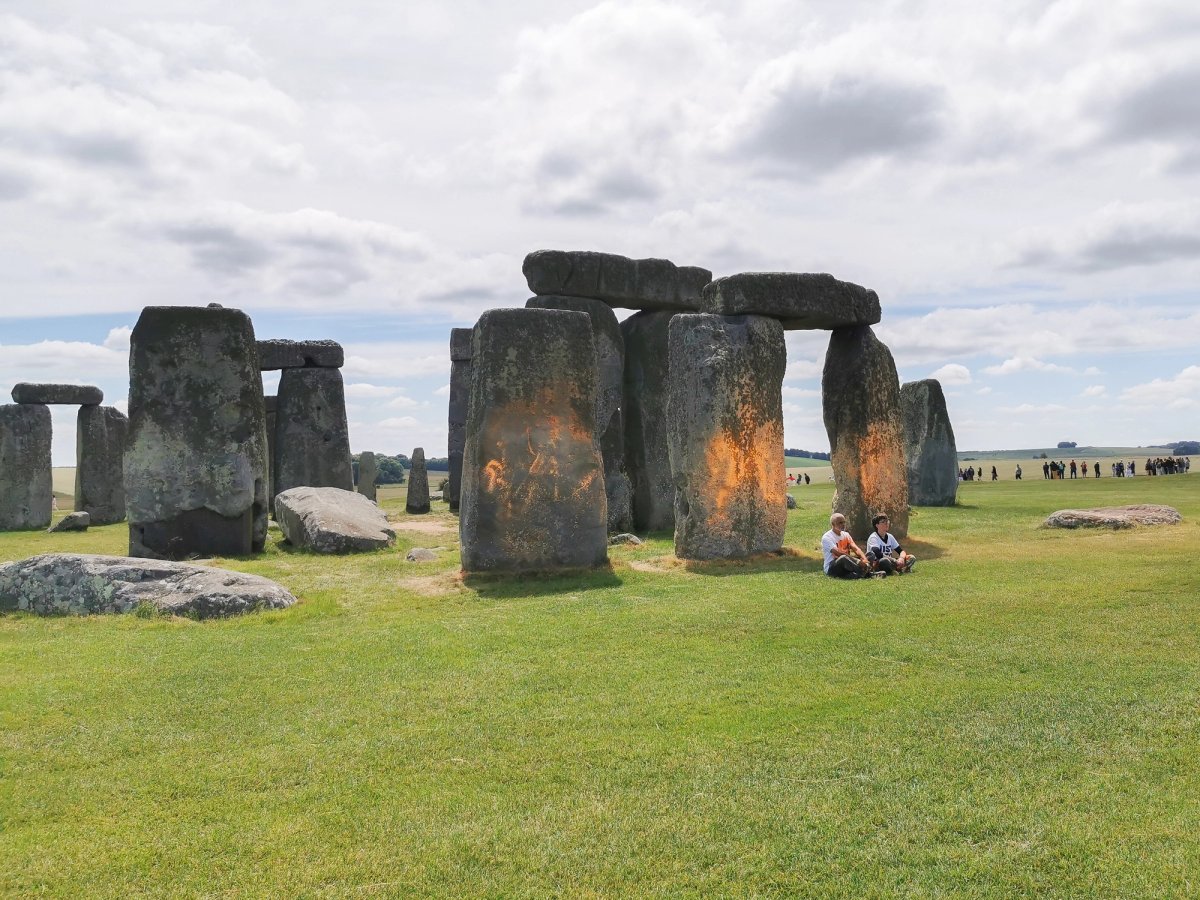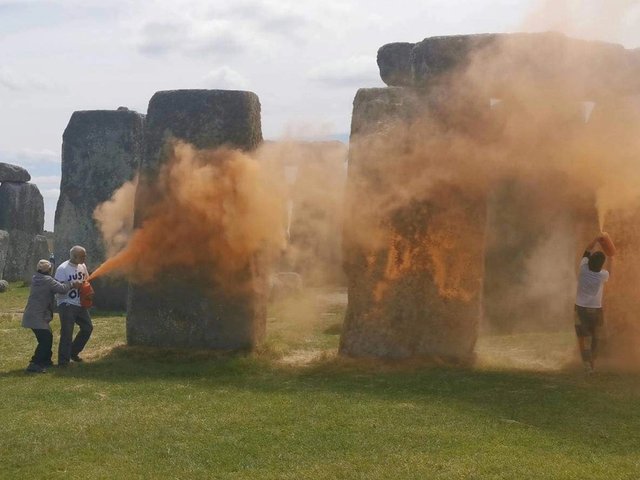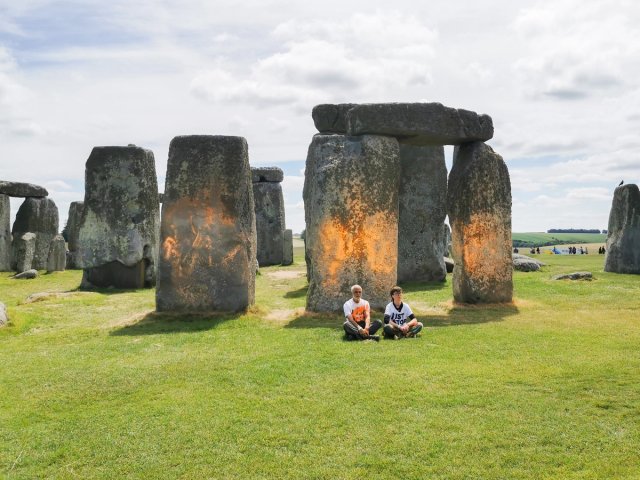Three climate activists from the campaign group Just Stop Oil have been found not guilty of criminal damage after daubing some of the ancient stones of Stonehenge with dye.
On Friday (31 October), a jury at Salisbury crown court, UK acquitted Luke Watson, Rajan Naidu and Niamh Lynch after deliberating for six hours.
In June last year the prehistoric structure in Wiltshire was targeted by the environmental activists who covered some of the stones with cornflour, talcum powder and orange dye. The cost of removing the substance, which was done the same day as the attack, was £620.
According to a Wiltshire police statement, Watson was subsequently charged with one count of aiding, abetting, counselling and/or procuring destroying or damaging an ancient protected monument. Naidu and Lynch were charged with destroying or damaging an ancient protected monument, and intentionally or recklessly causing a public nuisance.
However, at trial the defendants argued that there was no lasting damage to the stones, and cited their rights to to freedom of speech and freedom to protest under Articles 10 and 11 of the European Convention on Human Rights.
Naidu said after the verdict: “Life and survival before greed and profit! We need a global fossil fuel non-proliferation treaty right now.”
According to prosecutors, the three had recklessly risked permanent damage to Stonehenge which is a Unesco World Heritage site. Simon Jones, the prosecuting lawyer, added that the protest was “an act of blatant and clear vandalism. The intention is undoubtedly to make a statement”.
Judge Paul Dugdale said during his summing up: “This was an important decision for the issues about the right to protest, the right to freedom of speech compared to the right of a world heritage site to sit unmolested by members of the public. It’s a difficult one to gauge.”
English Heritage, which looks after Stonehenge, said after the incident that “there appears to be no visible damage but that’s in no way saying there hasn’t been harm, from the very act of having to clean the stones to the distress caused to those for whom Stonehenge holds a spiritual significance”.





